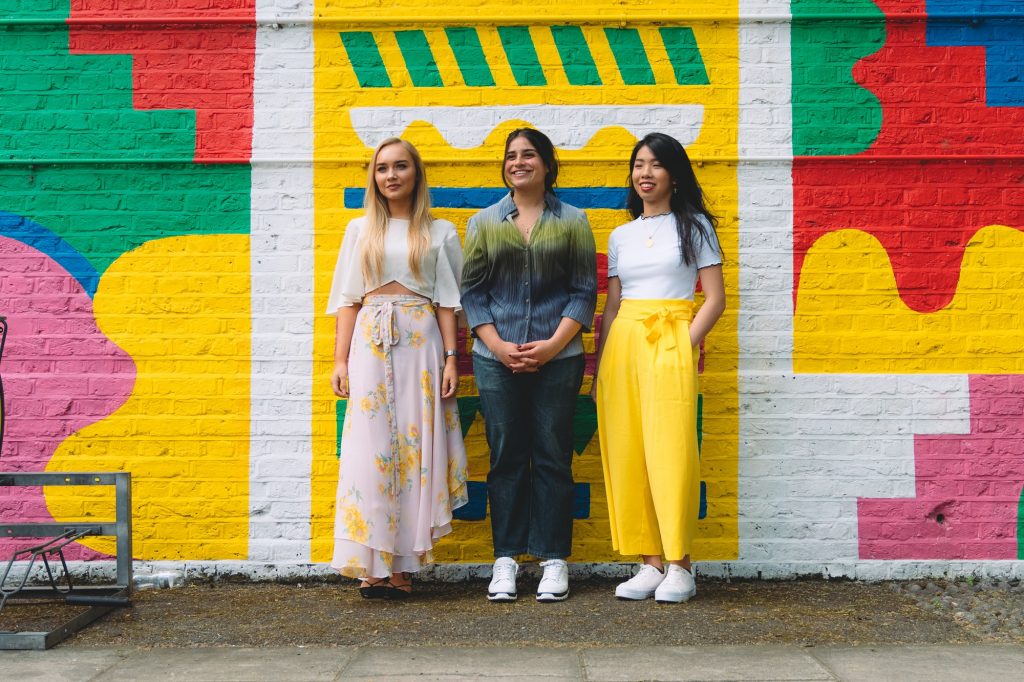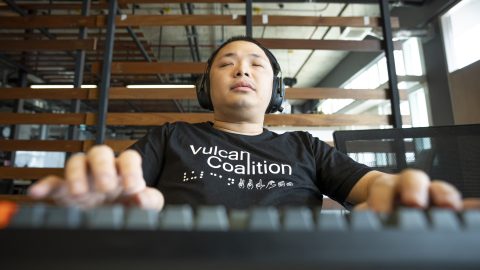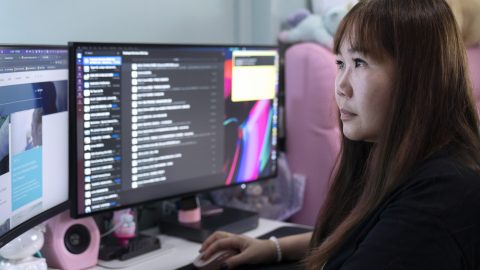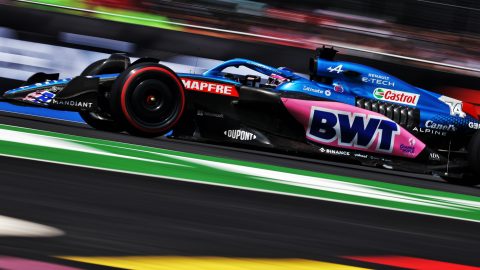London College of Fashion: Nurturing designers with bespoke tailoring and artificial intelligence
Imagine shopping in a mixed-reality boutique full of luxurious clothes but no physical store. Or updating your clothes with a digital style assistant that knows your wardrobe and tells you what to buy. Or wearing a trackable shirt that helps designers follow the garment’s life cycle to create more sustainable products.
These ideas address real-world problems in fashion, from brick-and-mortar retail woes to sustainability in clothing production. But they came from students at the London College of Fashion, a prestigious school that teaches future designers and fashion leaders to disrupt the industry with traditional and digital skills. The school offers everything from artisanal courses in footwear and bespoke tailoring to advanced research in 3D effects and wearable technology.
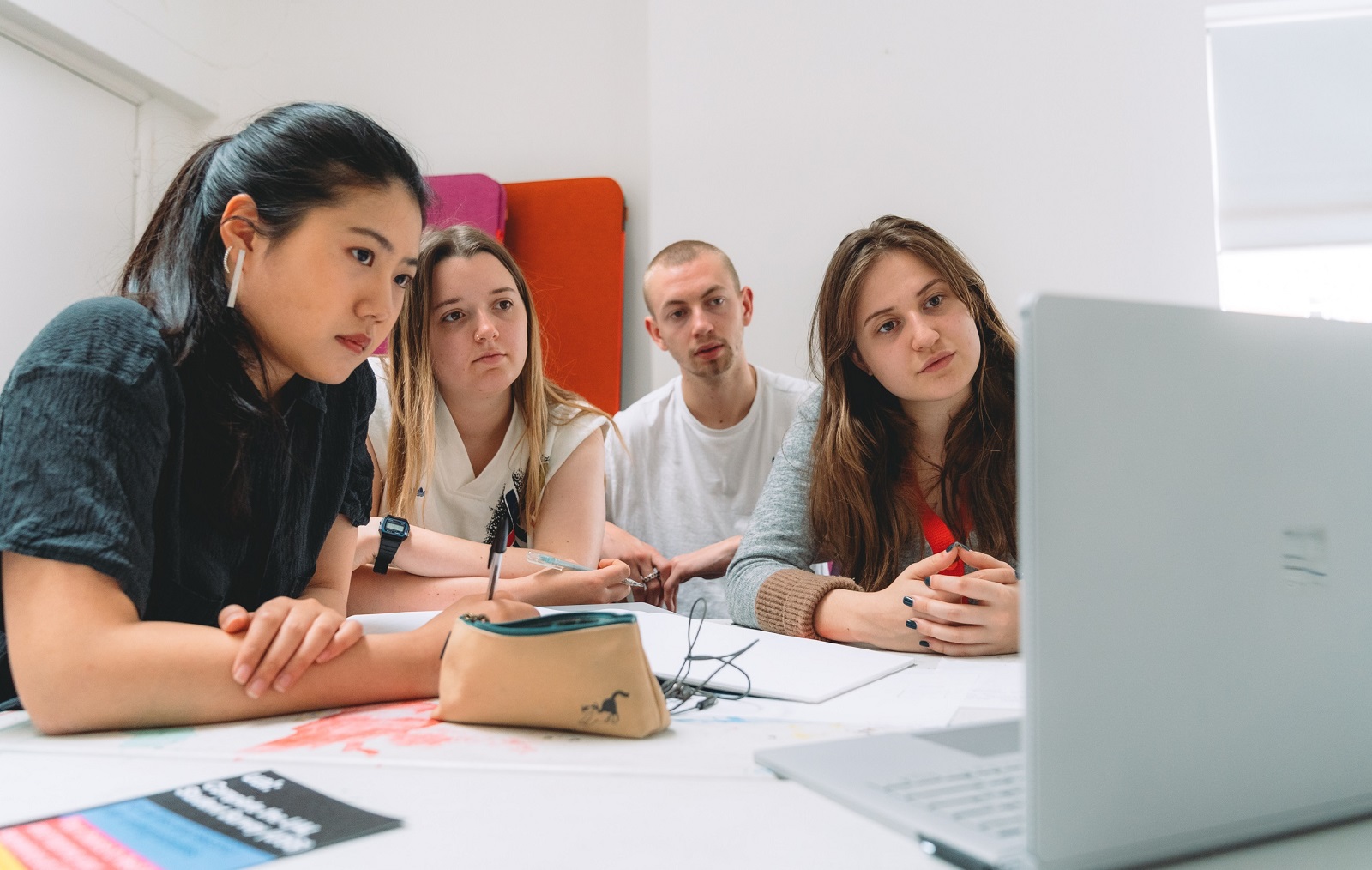
“We cannot ignore the way that digital has impacted everyday life and completely changed how designers, brands and retailers engage with consumers,” says Matthew Drinkwater, head of the Fashion Innovation Agency, the school’s organization for using and teaching emerging technologies.
“We have to prepare our students for a world that is changing at a faster pace than any point we can remember.”
With the start of a new school year and the swirl of New York and London Fashion Weeks this month, Drinkwater is excited about the creative promise of new technologies: 3D prototyping to reduce waste, mixed and virtual realities to revive retail, AI to pinpoint consumer demand.
Earlier this year, he and the London College of Fashion worked with Microsoft to create an incubator program focused on student innovation in three areas: mixed reality, artificial intelligence (AI) and the Internet of Things (IoT).
For three months, 30 students from different disciplines worked with Microsoft experts and fashion mentors to develop prototypes with the “Future of Fashion Incubator.” They got hands-on experience with Microsoft HoloLens and Azure capabilities in AI, IoT and data-driven solutions. And they got feedback from prominent industry insiders, from London sustainability designer Charli Cohen to New York fashion maven Natasha Franck, the founding CEO of Eon, a “circular fashion” collective for renting on-trend clothes.
In June, students presented their projects at a celebratory show.
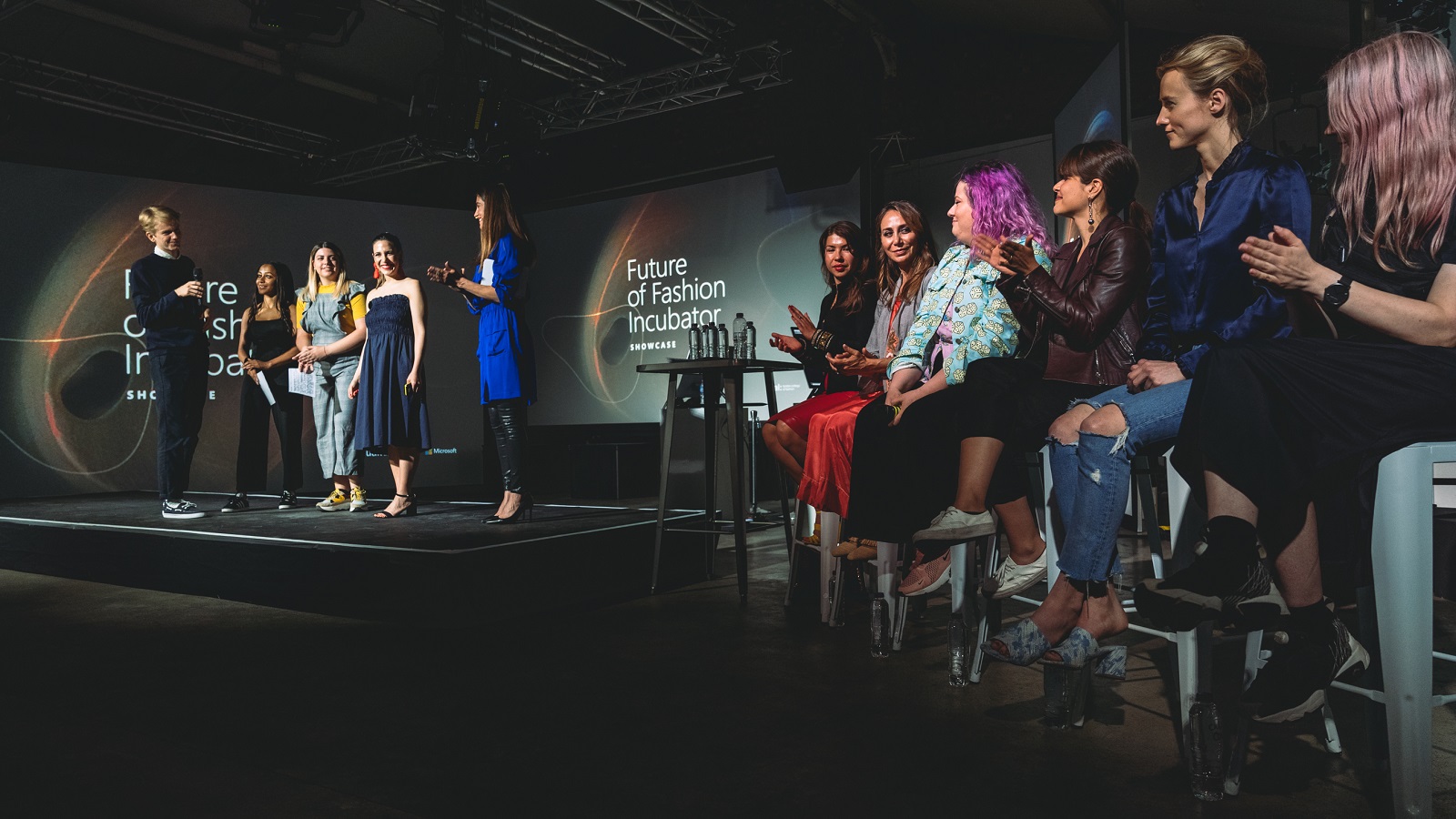
“They were absolutely beside themselves with joy,” says Peter Hill, technical manager of the Digital Learning Lab, which hosted the incubator. “Many said the program was the best thing they’ve done at the university. It fulfilled a huge demand for understanding how technology can change the industry.”
Student projects included a style assistant that scanned your wardrobe with computer vision and gave advice on what to buy and where to shop with Azure Machine Learning. Another project used AI to classify live images of people and their clothes – women in suits, for example, or men in shorts – near a digital sign. The sign then displayed targeted ads based on who was nearby.
The DiDi: Data by Design project used Azure IoT and a radio-frequency identification chip in thread to help designers track data on garment performance in different weather conditions and activities to make more durable, useful clothes.
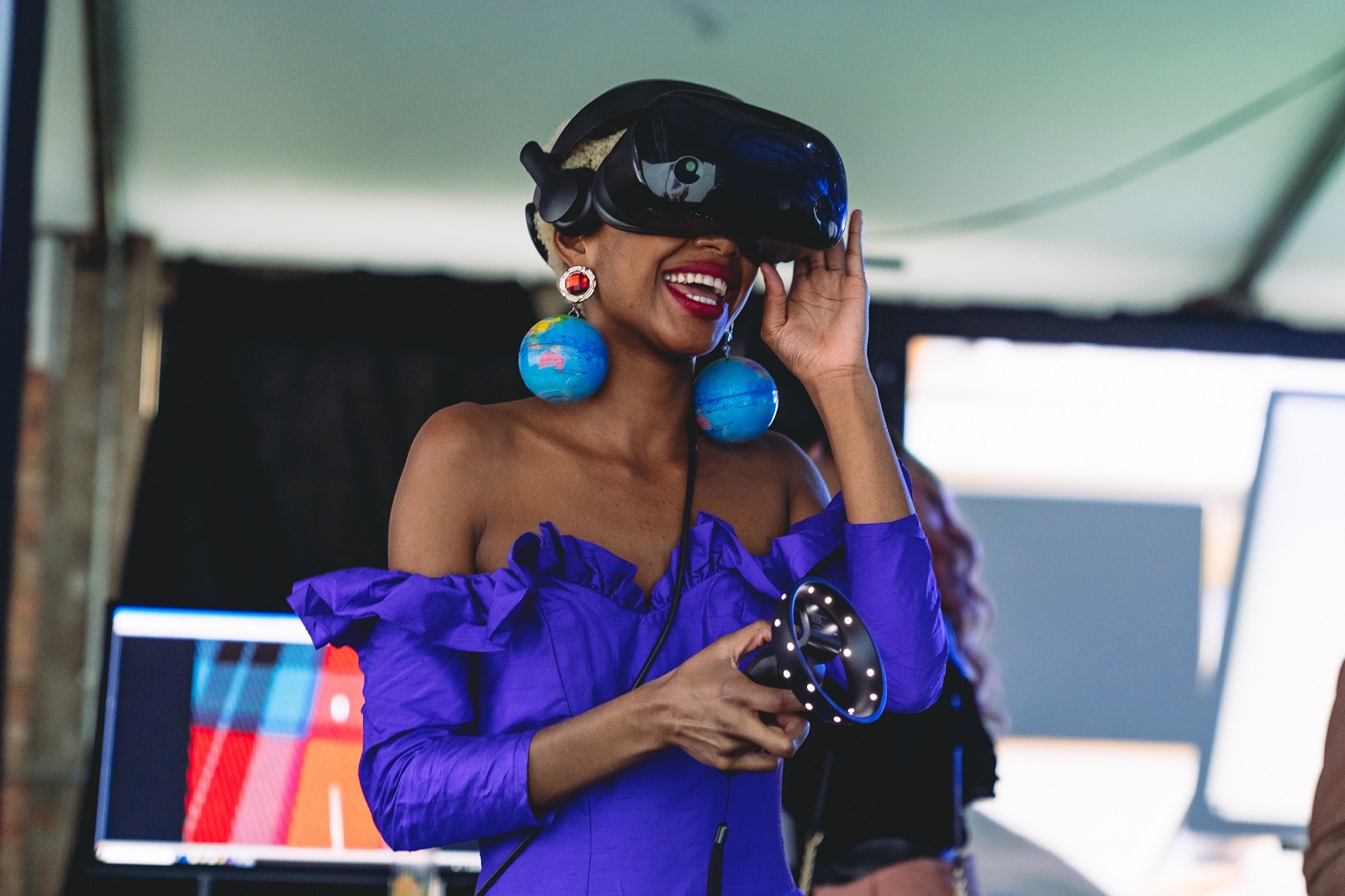
“Getting to showcase your work that you have spent lots of time creating was very rewarding,” says fashion contour student Anna Richards, a member of the DiDi group. “I really loved the atmosphere and getting to meet people from the industry that I wouldn’t have met otherwise.”
Drinkwater says the school wants to repeat the incubator program, whose key elements included hands-on experience and access to experts. “Working directly with Microsoft made it feel real for students,” he says. “They felt they were genuinely making a difference in the industry and finding solutions to real-life problems.”
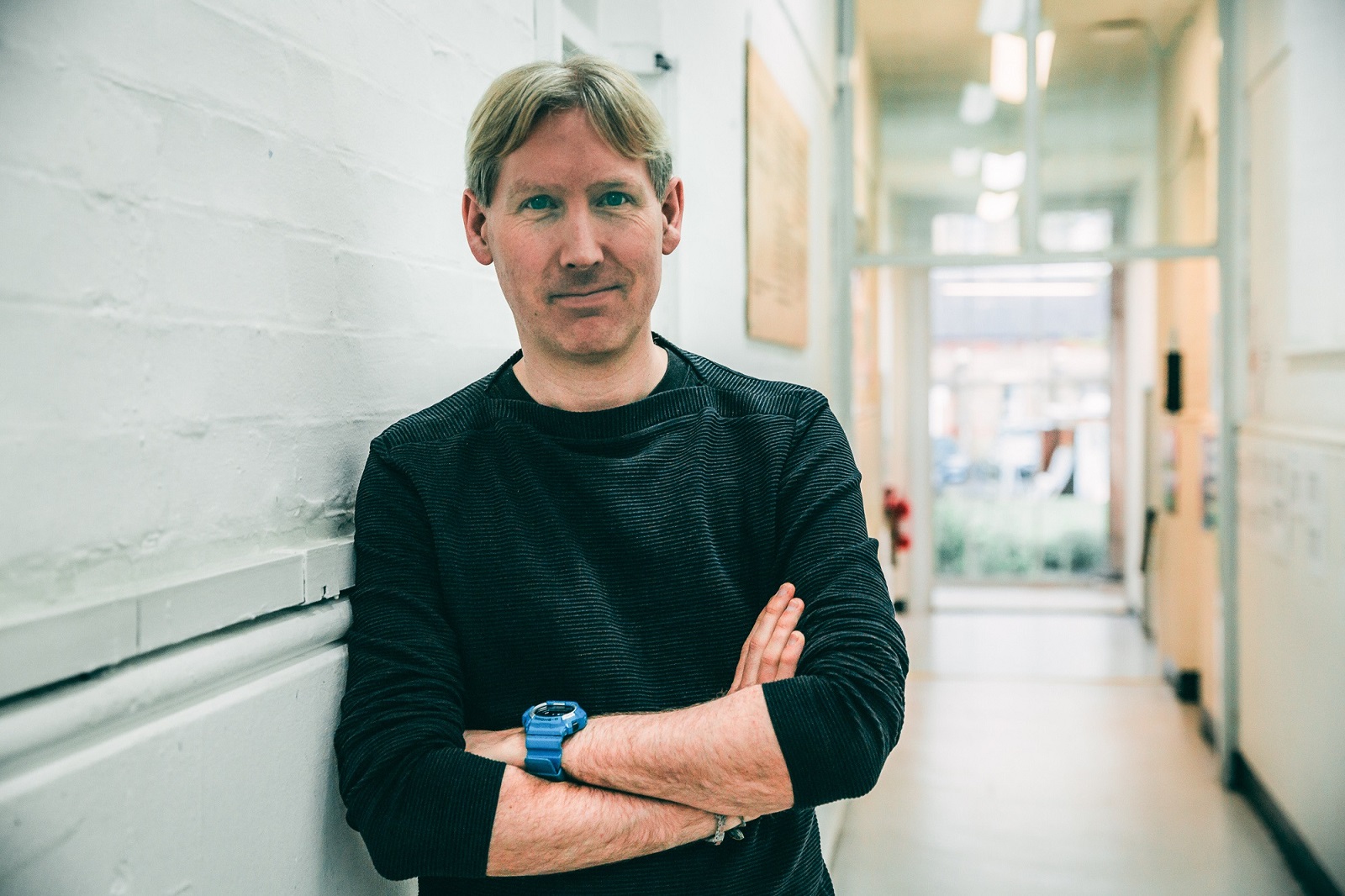
With technology transforming all aspects of fashion – from making and showing collections to selling and engaging with customers – Drinkwater has been hard at work exploring new ideas. In February, his Fashion Innovation Agency helped create a dazzling augmented-reality show at the semiannual London Fashion Week. And last year, he developed a photogrammetry system to display goods in 3D online.
“At the London College of Fashion, it’s hugely vital that we bridge the gap between fashion and technology and support a new generation of designers and businesspeople who understand new technologies,” Drinkwater says.
“It will impact everything they do.”
Top photo: London College of Fashion students (left to right) Sally Thompson, Hana Hussein and Charmaine Jiayi Leong, creators of a style assistant app called Janet.

